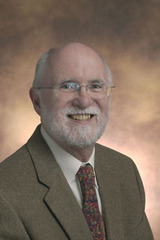Beebe
Home Page
Academic Information
Meadville Lombard
Masters of Divinity, 2010.
Stanford University
Ph. D., 1978, International Development Education.
Stanford University
M.A., 1976, Anthropology.
Stanford University
M.A., 1976, Food Research (International Agriculture Development).
University of the Philippines
Graduate Work, Anthropology.
New York University
B.A., 1968, Politics.
Gulf Coast Community College, Panama City, Florida
A.A., 1966.
Research Interests
- Research has focused on the development and use of intensive, team-based qualitative research, Rapid Assessment Process (RAP). RAP uses triangulation and iterative data analysis and additional data collection to develop a preliminary understanding of a situation from the insider's perspective in one or two weeks. RAP has been used by others in research on agriculture, public health, higher education, public administration, leadership, etc. in both developing and developed countries. I have been involved in RAP based research/training on community colleges in the U.S., the public sector's ability to respond to HIV/Aids in South Africa, state farms in Eastern Europe, and response of university students to HIV/Aids in Botswana. An emerging area of research has been leadership in Africa, with a focus on indigenous models of values-based leadership.
Courses and Other University Activities
- Since 2001 a major focus has been establishing linkages between the Doctoral Program in Leadership studies at Gonzaga University and programs overseas and using these activities to facilitate the addition to the Doctoral Program in Leadership Studies of a strong global systems component. Successful funding proposals totaling $229,000 have covered five trips and allowed me to do training and presentations on RAP and to do RAP-based research. This funding also covered academic-based international travel by 10 individuals from Gonzaga and 11 individuals from Southern Afrcia. The major activity was the U.S. State Department funded Exchange Partnership project designed to strengthen the ethics focus of the Ph.D. program in Public Affairs at the University of Pretoria and the global focus of the Ph.D. program at Gonzaga University. In addition to developing the proposal, I served as the project director.
Qualitative Research Methodology (Summer 2006)
Leadership and Technology (Fall 2004)
Global Systems and Policy Analysis (Summer 2006)
Literature Review for the Dissertation (Fall 2004)
Proposal Seminar(Fall 2006)
Computer Analysis of Qualitative Data (Summer 2006)
Board Member, Webmaster, and former Director Gonzaga Institute for Action Against Hate
Professional Experience
- 1996-current Professor Doctoral Program, Gonzaga University (Tenured)
1996-2000 Program Director, Doctoral Program, Gonzaga University
1979-1996 Foreign Service Officer, United States Agency for International Development
1994-1996 Director, Office of Economic Development, USAID/South Africa
1992-1993 Chief, Agricultural Policy Division, R&D/USAID/Washington
1990-1992 Professor (USAID-RJCC assignment), Oregon State University
1989-1990 Director, Office of Resource Development, USAID/Liberia
1987-1989 Director, Office of Agricultural Development, USAID/Liberia
1985-1987 Chief, Agricultural Development Division, USAID/Philippines
1983-1985 Agricultural Projects Officer, USAID/Philippines
1981-1983 Agricultural Development Officer, USAID/Sudan
1979-1980 Human Resources Development Officer, USAID/Liberia
1979 Consultant and Planning Specialist, Community Association for Retarded, Palo Alto, California
1977-1978 Assistant Professor of Education, Monterey Institute of Foreign Studies, Monterey, California
1977-1978 Principal Investigator and Project Director, Filipino Association of Mountain View, Ca.(U.S. Dept of Labor grant).
1976-1977 Dissertation Research in the Philippines, Stanford University
1974-1975 Teaching and Research Assistant, Stanford University
1968-1973 Peace Corps Volunteer, Philippines
Representative Publications
- Beebe, J. (2005). Rapid assessment process. In K. Kempf-Lenoard (Ed.) Encyclopedia of social measurement: Three volume set. (Vol. 3, pp 285-291)San Diego, CA: Academic Press/Elsevier.
- Beebe, J. (2002). Basic concepts and techniques of rapid appraisal. In J. McDonald (Ed.). The applied anthropology reader. (pp. 70-87). Boston: Allyn & Bacon/Longman.
- Beebe, J. (2001). Rapid Assessment Process: An Introduction. Walnut Creek, CA: AltaMira.
- Beebe, J. (2000). Rapid assessment and response: Sound methodology for producing timely responses. International Journal of Drug Policy, 11, 29-32
- Beebe, J. (1995). Basic concepts and techniques of rapid appraisal. Human Organization, 54(1), 42-51.
- Beebe, J. (1994). The concept of the average farmer and putting the farmer first: The implications of variability for a farming systems approach to research and extension. Journal of Farming Systems Research-Extension, 4(3), 1-16.
Overseas Experience and Travel
Twenty years experience living and working outside the United States as a Peace Corps Volunteer, graduate student, researcher, U.S. Foreign Service Officer (United States Agency for International Development), Global Technology Corps Volunteer, Senior Fulbright Specialist, and project participant and director. Long-term assignments in the Philippines, Sudan, Liberia, and South Africa with short-term assignments in Egypt, Kenya, Sierra Leone, Malawi, Zimbabwe, Poland, Romania, Indonesia, Botswana, and Thailand. Since joining the faculty at Gonzaga in 1996, I have made presentations at international conferences in Puerto Rico, South Africa, Botswana, and Canada and have done guest lectures at a university in Botswana, six universities in South Africa, and three universities in the Philippines. I have conducted RAP-based research on public health issues in South Africa; been an invited presenter on RAP and the use of technology at the Biotechnology, Breeding, and Seed Systems for African Crops Workshop sponsored by the Rockefeller Foundation, Bellagio, Italy, 2002; was responsible for providing training on RAP for U. S. Department of Agriculture personnel in Africa as a tool they could use to improve their interaction with host-country counterparts in Dakar, Senegal, 2004; was an invited resource person on the use of RAP and other forms of community assessment at the Wingspread conference on developing a protocol for work at the Base of the Pyramid, 2004 and 2005; and was in invited presenter on IT and leadership at the eQuality workshop for College Presidents and IT leaders, Philippines, 2006.
May 2013
